
SEOUL, Feb. 20 (Xinhua) -- South Korean shares rose by the most this year on Wednesday as concerns over the won's ascent against the U.S. dollar eased after President-elect Park Geun-hye pledged to make efforts to stabilize the currency market.
The benchmark Korea Composite Stock Price Index (KOSPI) increased 38.81 points, or 1.95 percent, to 2,024.64, topping the 2,000 mark in more than a month. Trading volume stood at 402 million shares worth 4.82 trillion won (4.47 billion U.S. dollars).
Export shares gained ground on eased concerns over the stronger won. Market bellwether Samsung Electronics advanced 3.6 percent, breaching the 1.5 million won mark in a month. Auto shares, including Hyundai Motor, Kia Motors and Hyundai Mobis, gained between 1 percent and 3 percent.
President-elect Park said at a meeting with business figures that "currency stabilization is very important," noting that the new government, which will take office on Feb. 25, will respond to currency volatilities in a pre-emptive and effective manner.
Her comments came as strong won and weak yen fueled concerns over the weakening of price competitiveness of South Korean exporters. Since September 2012, the Japanese yen has dropped more than 17 percent against the U.S. dollar, while the South Korean currency has gained over 3 percent versus the greenback.
Park's first remarks on currencies following the presidential election indicated that the new government would unveil new measures to curb abrupt capital flows in and out of the country as early as in March.
Foreign funds raised their holdings of stocks by 569.8 billion won, the largest in 2013. Local institutions bought stocks worth 240.2 billion won, while retail investors dumped shares worth 762 billion won.
The local currency finished at 1,078.5 won against the greenback, up 2.7 won from Tuesday's close.
Bond prices ended lower. The yield on the liquid three-year treasury notes rose 0.02 percentage point to 2.71 percent, and the return on the benchmark five-year government bonds added 0.02 percentage point to 2.82 percent.
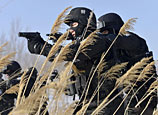

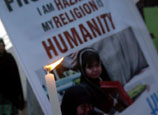
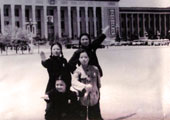

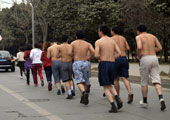


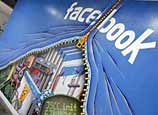
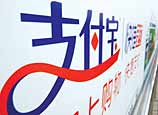






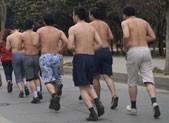 Employees run half-naked for not meeting sales quotas
Employees run half-naked for not meeting sales quotas


![]()
